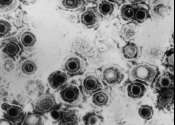Machine learning sheds light on gene transcription
A team led by researchers at UT Southwestern Medical Center has developed deep learning models to identify a simple set of rules that govern the activity of promoters—regions of DNA that initiate the process by which genes ...
May 14, 2024
0
41



